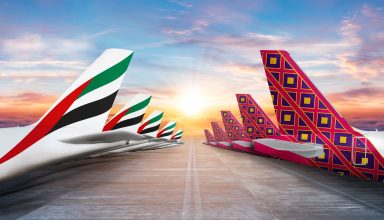Watch: Now, driverless abras in Dubai; RTA announces trial of autonomous electric boat

Watch: Now, driverless abras in Dubai; RTA announces trial of autonomous electric boat

Dubai has started the trial operation of a driverless electric abra, the Roads and Transport Authority (RTA) announced on Sunday. The traditional boat — a common sight in the Emirate’s waters — can carry eight passengers.
The autonomous vessel was manufactured locally at the RTA’s Al Garhoud Marine Maintenance Centre. Its design retains the heritage identity of abras.
The initial journey of the driverless abra took place from Al Jaddaf to the Festival City station on the Dubai Creek. This marks one of the world’s first marine trials in passenger transport.
Mattar Al Tayer, director-general and chairman of the Board of Executive Directors, RTA, said: “The autonomous electric abra boasts superb features highlighted by zero carbon emissions, lower operating and maintenance costs (by up to 30 per cent), and the elimination of noise compared to diesel-powered models.

“It is equipped with two electric motors with a maximum speed of seven knots. It has an autonomous control system and four lithium batteries that ensure an operating time of seven hours. The RTA adopted new technologies in designing the structure … and used fibreglass in the hull to reduce its weight.”
How it works
It uses an automated self-driving system powered by radars and cameras that help it ‘see’ and navigate. Advanced technology detects threats and responds when needed.

During the trial run so far, the autonomous electric abra achieved ‘level 4’ out of the six specified for international autonomy levels for ship design and operation.
The trials — carried out in cooperation with Exalto Emirates and Marakeb companies — included operating and running fully autonomous procedures independent of the captain, who acts as operation supervisor to intervene only if needed.
The autonomous procedures ensure 100 per cent adherence to the predetermined line, despite the effects of the waves and wind. The boat detects obstacles in the navigational path and notifies the control centre of any system defect or deviation from the operating plan. The system intervenes if the abra faces an obstacle during the journey, and programmes additional scenarios to handle the situation.

“The RTA will develop automated anchoring operations and scenarios for making decisions during manoeuvering and emergency,” Al Tayer added.
The aim is to get the boats on ‘level 5’ of autonomy. The authority will coordinate with the Dubai Maritime City Authority in matters related to the legislation of autonomous marine means.
What is an abra?
The abra — which comes from the Arabic verb ‘abara’, that means ‘to cross’ — is the city’s most traditional mode of transport. For centuries, it has remained one of Dubai’s most frequented modes of transport, making it the symbol of the city’s history and heritage.
A trip cost starts from Dh1, making it the most affordable option to explore the Emirate’s waters.

Marine transport means ferried about 16 million riders in 2022. A master plan for the sector includes the development of four traditional abra stations in Dubai Creek: Bur Dubai, Deira Old Souk, Dubai Old Souk, and Al Sabkha.
The plan envisages increasing the capacity of the abra stations by 33 per cent, “using advanced technologies to reduce maintenance costs and increase the lifespan of assets; improving the lighting of stations and marinas; and providing facilities for customers and investment areas”.
Driverless future
The RTA has an ambitious strategy to convert 25 per cent of the total mobility journeys in Dubai into self-driving ones by 2030. This includes the deployment of Cruise autonomous taxis by the end of the year.
ALSO READ:
source: khaleejtimes



